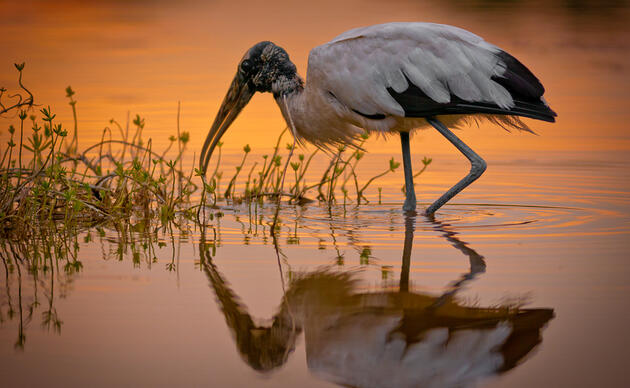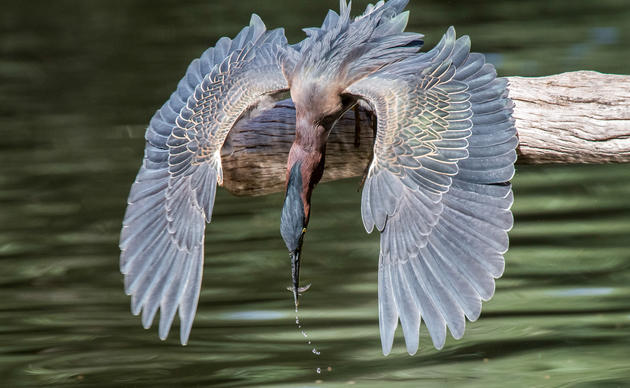Meagan Rindge opened the door to her West Ashley front yard and screamed.
“The biggest bird we’ve ever seen was out there with its wings extended. It was just enormous,” said Nick Rindge, her husband.
Their Wednesday morning was about to get weirder.
When the bird — a bald eagle with a wingspan of about 7 feet — flew off, another bald eagle lay on the grass, left behind. This one was dead.
What the Rindges saw was likely the aftermath of a turf war, a battle between males in the clashes of mating season, said Jennifer Tyrrell of Audubon South Carolina.
An Audubon survey team recently came across two of the raptors tangling like that and had to rescue one, she said.
Less commonly realized is what happened to the fallen eagle, a protected species. The Rindges contacted a rescue group, which sent a volunteer with a cooler to collect the carcass. It was on its way to a federal morgue in Colorado.
The low-profile National Eagle Repository is run by the U.S. Fish and Wildlife Service outside Denver to store the remains of bald and golden eagles — in order to distribute the feathers, talons and other parts.
“My first thought was, ‘Wow, that’s special’,” Nick Rindge said. “My second thought was, ‘That’s my tax dollars at work.’ ”
The parts are shipped to Native Americans and Alaskan natives enrolled in federally recognized tribes for use in Indian religious ceremonies, spokeswoman Christina Meister said. The repository also operates as a conservation research lab.
Bald eagles apparently fought it out above or on the West Ashley lawn of Nick, Meagan and Brock Rindge. Provided
The majestic bald eagle, the once-rarely spotted American symbol, has reclaimed its place along South Carolina waterways and is now a common suburban sight. It is also considered a sacred animal in centuries-old native practices.
More bald eagles fly overhead than have been in the skies in a very long time — an estimated 440 pairs in South Carolina — and most of the raptors nests' in the state’s rapidly urbanizing coast. The Rindges live near the Ashley River marsh.
The raptor that became the emblem of the Endangered Species Act hasn’t been on that list for a decade. It’s considered fully recovered.
But as federal protections for the birds are scaled back and building continues to knock down woods and develop the waterfront, getting used to living near humans is the future for the fierce-eyed predator, as with any number of other species. The ones that habituate will survive.
The repository is its own kind of a critter.
It was established in the early 1970s amid the backlash to federal restrictions against taking the protected species. Peoples who had used the bird for centuries for everything from war bonnets to daily blessings, suddenly found they were guilty of poaching if they kept to their ancient practices.
For distribution, specific parts must be requested. The applicant must provide proof of tribal status and a reference from a tribal official. No fees are charged. The repository operates on an annual budget of just under $1 million.
As you might expect, demand exceeds supply. A request for 10 loose feathers can take a year to fill, according to the repository website. A whole bird can take five years.
But with a Native American population of 6 million and the value of the conservation research, the funding itself isn’t widely questioned.
The Rindges, meanwhile, are still a little wide-eyed at the whole experience.
“We have some big trees and we’ve seen some funny things,” Nick Rindge said, “but nothing like those bald eagles.”




